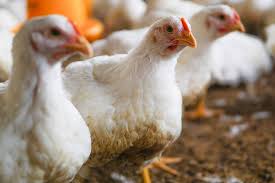 Minister of Agriculture announces a series of measures to address the shortage of poultry and eggs in Tunisia
Minister of Agriculture announces a series of measures to address the shortage of poultry and eggs in Tunisia
During the general session of Parliament to consider the mission of agriculture, water resources and marine fishing, Minister of Agriculture Ezzeddine Bel Sheikh referred to the crisis of poultry products, speaking about its causes and the measures taken by the ministry to address it.
In this context, the Minister of Agriculture said that "a decline was recorded in the expected production of broiler chickens during the period extending from August 2024 to April 2025, as a result of the exclusion of broiler mothers from the production chain for health reasons, and the reduction in supply at the global level due to the spread of highly virulent bird flu in most European countries." He added: "A series of measures have been taken to confront this, including a mandatory two-month extension in the production chain of all broiler breeder flocks, and the supply of hatching egg containers, starting from July 2024 until February 2025."
The Minister of Agriculture continued by saying: "4.2 million hatching eggs have been supplied to date, and it is expected that production levels will be acceptable during the coming period."
As for the production of eggs for consumption, a flock of laying hens was infected with salmonella, according to the minister's statement, who confirmed that this resulted in a production shortage of about 5 million eggs per month, starting from September 2024. Accordingly, and to avoid the resulting shortage, a decision was taken to extend the production chain by two months as well, in the laying hens flocks of the Tunisian Poultry Company, and the major poultry companies. The Minister stressed that these measures will provide comfort in building a stock to meet basic needs, especially additional ones during the month of Ramadan 2025. Accordingly, on November 12, 2024, there will be a stock of consumer eggs to meet additional needs for the month of Ramadan 2025, in the range of 6.326 million eggs. The Tunisian Ministry of Trade had confirmed in a previous statement that setting the maximum prices for selling live chickens at a price of 5,300 millimes per kg concerns the production chain, i.e. at the level of farmers, while the selling prices to the consumer have not changed, and are within the maximum range, not exceeding 8,500 millimes per kg. It is noteworthy that the National Observatory of Agriculture had confirmed in its bulletin on the poultry sector, for the month of September 2024, that the prices of broiler chickens at production were fluctuating, as they ranged between the lowest price estimated at 6370 millimes/kg, and the highest price at 7494 millimes/kg, i.e. a variation rate estimated at 15%.


















